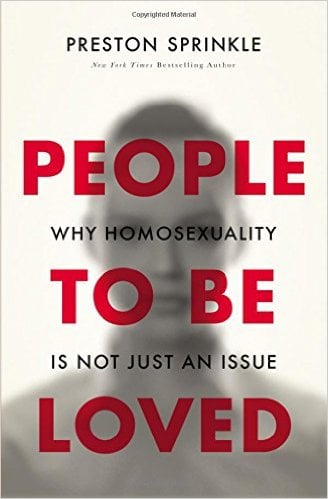⏱️ Estimated Reading Time: 3 min read
When it comes to the conversation of same-sex attraction, we have seen a sort of “Red Rover” happening among some folks. We’ve picked our sides and dared others to come join us. The focus is on building our viewpoint, our “camp” so to speak. Along the way, when setting up the campground, have we forgotten people? The issue of homosexuality is, as Preston Sprinkle reminds us in his new People to be Loved: Why Homosexuality is Not Just an Issue, that what we are dealing with is so much more than an issue, we are talking about people. It is in this vein that Sprinkle seeks to remind us, especially those of us who belong to the Church, that the LGBT community will never benefit from the truth if the truth is not delivered in love.
Strengths of the Book
I’ll start with the things I loved about this book. Sprinkle, a “non-affirmer,” is foremost someone who has walked with the LGBT community. This is deeply convicting in and of itself. Many Christians, in my estimation, sit in their ivory towers making lofty assumptions about what LGBT life is like. Since Sprinkle knows walks with people within the LBGT community, he listens to them, he sees their struggles, and he journeys with them.
To illustrate Sprinkle’s compassion and heart for those in the LGBT community, I share these sobering words:
“Let me get real with you. I have become so discouraged over the years at how evangelicals have postured themselves against the LGBT community. And it’s not just my isolated experience. According to the statistics, when young non-Christians were asked about the first thing that came to mind when they thought of evangelical Christianity…Ninety-one percent said…“antihomosexual.” The next two perceptions are that Christians are “judgmental” (87%) and “hypocritical” (85%). And most of the people surveyed had some personal contact with a Christian church. Their responses were largely from firsthand experiences. (79)
To paraphrase Sprinkle, LGBT people have left the church, not over the simple disagreement of behavior and lifestyle, but more so because “their humanity wasn’t affirmed” (82). This is saddening. We need compassionate and caring church voices, non-affirming voices, to remind us of the Church’s necessity to love people of all orientation, class, race, and gender. People to be Loved is a book saturated with this principle.
The other major thing that makes this book a success is how carefully researched and thoughtful it is. Other books have sought to show the biblical cases for/against same-sex marriage, but People to be Loved goes deeper. It does biblical exegesis, but also consults historical and scientific studies to further verify its claims. Sprinkle never accepts a blanket claim without thinking through the defenses for it or the pushbacks it faces, and I appreciate that. It would be easy to write a book for the non-affirming position giving only the affirming position.
Final Thoughts
Ultimately, this is a book worthy our attention. While I didn’t agree with some of the theological conclusions Sprinkle comes to, such as affirming the term “gay Christian” and advocating that a same-sex orientation is not the same as desire. Regardless, what matters is that we have to re-frame our understanding of homosexuality as people-driven, not issue-driven. Sprinkle helps us do that. I’m thankful for his voice, but mostly for his heart and the challenges he gave me in People to be Loved.




